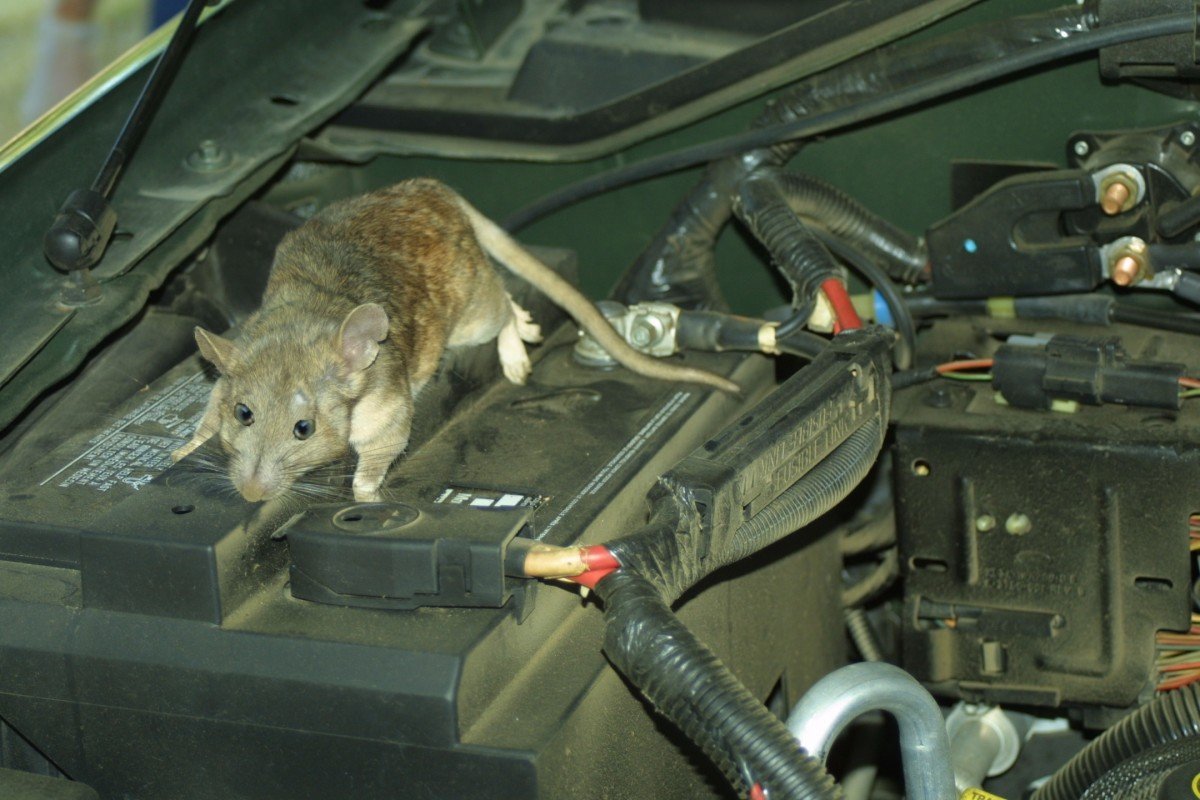Discovering rats in your car’s engine bay can be a nightmare for any car owner, and in the Philippines, this problem is not uncommon due to the tropical climate and abundant food sources. Rats can cause extensive damage to your vehicle, from gnawed wires to compromised insulation. If you find yourself facing this issue, it’s essential to address it promptly and effectively. In this guide, we’ll explore what steps you should take when you have rats in your car engine bay in the Philippines.
How to Get Rid of Rats in Your Car Naturally
- Clean Your Car: Start by thoroughly cleaning your car, removing any food debris, wrappers, or crumbs. Rats are attracted to food sources, so eliminating these can discourage them from taking up residence.
- Peppermint Oil: Rats dislike the scent of peppermint oil. Soak cotton balls in peppermint oil and place them in various locations within your car, such as the engine bay, under the seats, and in the trunk. Refresh the oil regularly.
- Ultrasonic Repellents: Invest in ultrasonic repellent devices designed for cars. These emit high-frequency sound waves that are irritating to rats but safe for humans. Place these devices in your car’s interior.
- Mothballs: While not a preferred method due to their toxic nature, some car owners use mothballs to deter rats. Place them strategically inside your car, but exercise caution and keep them out of reach of children and pets.
Best Rodent Repellent for Car Engines
When it comes to preventing rats from entering your car’s engine bay, several products are available in the market that can serve as effective rodent repellents. Here are some options:
- Rodent Repellent Tape: This tape is specially designed to deter rodents. It emits a scent that rats find unpleasant. You can apply it to various parts of your car, including the engine bay.
- Rodent Repellent Spray: Some sprays are formulated to keep rodents away. You can apply these sprays to vulnerable areas in your engine bay. However, reapplication may be necessary after heavy rain.
- Ultrasonic Repellent Devices: As mentioned earlier, ultrasonic repellent devices emit high-frequency sound waves that rodents find irritating. These can be placed in the engine bay or interior of your car.
- Wire Mesh and Barriers: Installing wire mesh or barriers around vulnerable areas of your engine can physically prevent rats from gaining access.
Can I Put Rat Poison in My Car Engine?
While it might be tempting to use rat poison to eliminate the rodents in your car engine, it’s generally not recommended for several reasons:
- Safety Concerns: Rat poison is toxic, not only to rats but also to other animals and humans. If the poison is not handled and placed correctly, it can pose a significant health risk.
- Dead Rat Odor: If a rat consumes poison and dies within your engine bay, you may have to endure the unpleasant odor of a decaying rat until it decomposes completely.
- Accessibility: Rats often build nests and hide in tight spaces, making it challenging to ensure they consume the poison.
- Ethical Considerations: Using poison can be considered inhumane, as it causes suffering to the rats.
Instead of resorting to poison, it’s advisable to employ safer and more humane methods of rodent control, such as those mentioned earlier.
Rats in Car Engine Solutions
- Inspect Your Engine Bay: Begin by inspecting your engine bay carefully. Look for signs of rat activity, such as chewed wires, nests, or droppings. Identifying the extent of the problem is crucial.
- Clean Thoroughly: Remove any debris, nesting materials, and droppings from your engine bay. Cleaning is essential to prevent rats from returning.
- Seal Entry Points: Determine how rats are gaining access to your engine bay and seal these entry points. Rats can squeeze through small openings, so be meticulous in your inspection.
- Use Repellents: Employ natural repellents, such as peppermint oil-soaked cotton balls, ultrasonic repellent devices, and rodent repellent tape, as mentioned earlier.
- Regular Maintenance: Stay vigilant and conduct regular maintenance checks on your car. Inspect the engine bay for any signs of rat activity and promptly address them.
- Professional Help: If the infestation persists or if you’re unsure how to deal with it effectively, consider seeking professional pest control services. Experts can assess the situation and implement appropriate measures.
In conclusion, rats in your car engine bay can be a significant nuisance and potentially cause severe damage. Taking proactive steps to prevent their entry and employing natural repellents are effective ways to protect your vehicle. Remember to prioritize safety and humane methods when dealing with rat infestations, and seek professional assistance if needed. With the right approach, you can keep these unwanted passengers out of your car in the Philippines.


